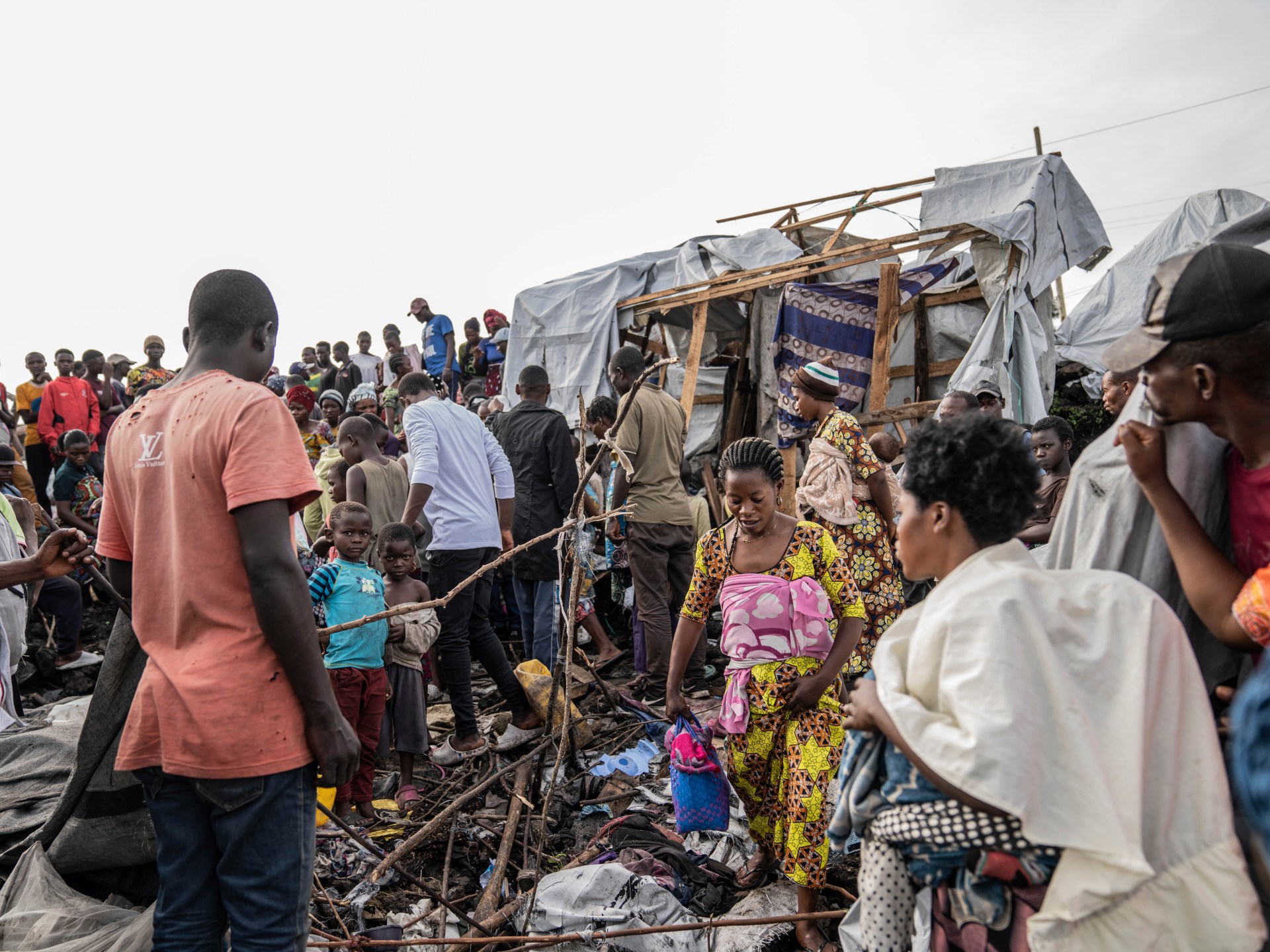Local authorities claim that the military governor of North Kivu province in the Democratic Republic of the Congo (DRC) has died from injuries sustained in front-line fighting as M23 rebel fighters attack Goma, the provincial capital.
The circumstances around the death of Major General Peter Cirimwami were unclear, but Cirimwami, who led army operations in restive North Kivu in the eastern DRC, visited troops on the front line in Kasengezi, about 13km (8 miles) from Goma, on Thursday, the day of his death.
A government source, a military source, and a UN source confirmed his death on Friday, all of whom had unofficial media access to his information.
Goma, a town with a population of about 2 million people and a regional hub for security and humanitarian efforts, is a region whose M23 has recently made significant territorial gains.
On Thursday, panic spread in Goma as rebels took control of Sake, a town 27km (16 miles) northwest of the provincial capital and on a road that is one of the last main routes into the city still under government control, according to UN Secretary-General Antonio Guterres.
More than 400, 000 people have been displaced by the raging conflict in North Kivu this year, according to the UN’s warning that it could start a regional conflict.
At a news briefing in Geneva on Friday, Matthew Saltmarsh, a spokesman for the Office of the UN High Commissioner for Refugees (UNHCR), stated that “the number of displacements is now over 400, 000 people this year alone, almost twice the number reported last week.
In the east of the nation, Saltmarsh expressed concern for the safety and security of civilians and internally displaced people.
According to him, “heavy bombardments caused families from at least nine displacement sites on the periphery of Goma to flee into the city for safety and shelter,” adding that many were living in poverty.
The United States, the UK, and France all issued an appeal to their nationals to leave Goma on Friday, prompting them to do so while airports and borders are open. The advice was published online, in messages sent directly via email or SMS.
M23 has been accused of widespread atrocities, including rape. Since the conflict started three years ago, more than two million people have been forced to leave their homes.
“We fled as a precaution because we know that when the enemy arrives in our village, they will forcibly recruit many young people”, Mumulirwa Baguma Destin, a displaced resident from Mukwija, told Al Jazeera.
In a decades-long conflict that has led to one of the largest humanitarian crises in history, about 100 armed groups have been fighting for a foothold in the mineral-rich eastern DRC along the border with Rwanda.
This month, M23 captured the towns of Minova, Katale and Masisi, west of Goma. M23 seized Goma in 2012 and controlled it for more than a week.
Rwanda is accused of backing M23, which is primarily made up of ethnic Tutsis who abandoned the Congolese army more than ten years ago, by the DRC, the UN, and UN experts.
Rwanda’s government refutes the accusations, but it acknowledged in the past year that it had troops and missile systems in the eastern DRC to protect its security, citing a rise in Congolese forces close to the border.
Al Jazeera’s Malcolm Webb, reporting from Nairobi in Kenya, said many people who have fled the fighting lived through M23’s 2012 , offensive and are terrified of the group.
“We’ve met people in camps who say they don’t want to live under what they see as a foreign occupation”, he said.

Leave a Reply